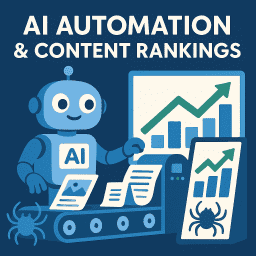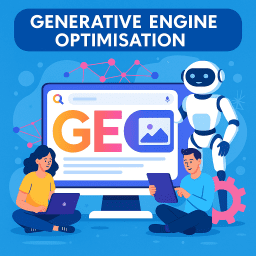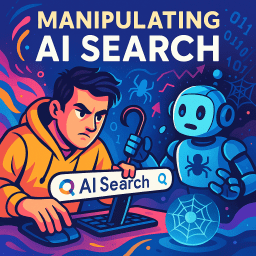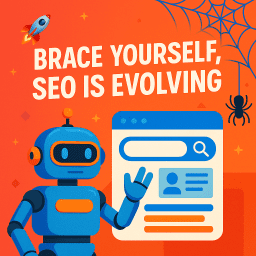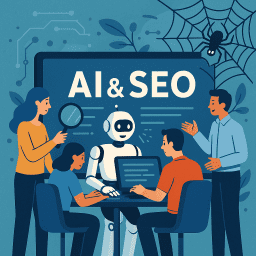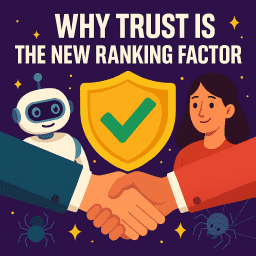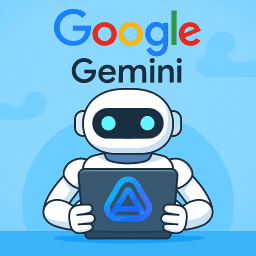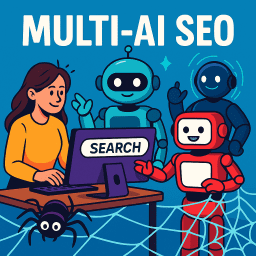Project Mariner: Google’s AI Agent & SEO Implications
Learn how Project Mariner, Google’s browser‑based AI agent, works and what it means for SEO as search becomes task-driven.
🚀 Project Mariner: Google’s Experimental AI Agent Explained
Project Mariner is an advanced AI initiative led by Google DeepMind, designed to develop intelligent, screen-aware agents capable of navigating the web, interpreting interfaces, and completing complex tasks in real time. First leaked in early 2025 and now publicly testable via the Gemini API, Mariner represents a significant leap in how artificial intelligence interacts with digital environments.
🧪 What Exactly Does Mariner Do?
Unlike traditional LLMs that respond to prompts in isolation, Mariner is a multimodal, action-oriented agent. It “sees” what you see on screen, making it ideal for executing tasks that would normally require human input. For example, Mariner can:
- Fill in and submit online forms accurately
- Navigate web apps and dashboards based on visual context
- Perform research across multiple tabs
- Follow multi-step processes such as booking flights or ordering products
- Analyse content layouts and react accordingly
Its architecture includes visual understanding, memory, state tracking, and integration with web navigation tools. It operates more like a digital assistant that acts on your behalf, rather than simply giving you advice.
📉 Implications for SEO & Website Usability
Project Mariner has the potential to change how search engines “use” your site. Rather than indexing static content, Google could start interpreting real-time interactions on your pages. That means:
- Interactive design becomes crucial – poorly structured forms or inaccessible content may become invisible to agents
- Structured data, semantic HTML, and ARIA roles become essential for AI agents to understand and act on page elements
- Conversion rate optimisation (CRO) merges with SEO – if the agent can’t complete a task, your page may be deprioritised
Developers and SEOs need to start thinking in terms of machine usability as much as human usability. If an AI agent is Google’s future search interface, you’ll need to ensure your site is navigable, actionable, and semantically clear.
🚫 Limitations and Current Availability
Currently, Project Mariner is not part of public Google Search. It’s being made available to developers via Gemini API under controlled environments. Early testers report that it still struggles with non-standard layouts, CAPTCHAs, and inconsistent CSS frameworks. However, it’s rapidly improving.
Google has hinted that elements of Mariner may be integrated into AI Mode in Search and AI Overviews, enabling search results to not only summarise answers but complete actions automatically.
🔧 How SEOs Should Prepare
- Audit your site for accessibility and structure – use tools like Lighthouse, Axe, and WAVE
- Ensure key tasks (forms, buttons, filters) are agent-friendly – label all elements properly with HTML5 and ARIA attributes
- Think beyond keywords – design experiences that are not only findable but usable and actionable by agents
- Track UX friction points – if users struggle, so will AI agents
- Use server-side rendering (SSR) to ensure full content is visible during crawl or simulation
Just as SEO evolved for mobile-first indexing and Core Web Vitals, it’s now evolving toward agent-first optimisation.
🚀 What Happens Next?
Mariner is still in its early days, but its future is clear: Google wants AI to help users not just find information, but act on it. If Gemini agents can browse, compare, and transact autonomously, the entire search ecosystem may change:
- Clicks may disappear – replaced by AI-triggered conversions
- Sites may be evaluated based on task completion, not just bounce rate
- SEO will merge with UX, design, accessibility, and process mapping
Keeping ahead of this means understanding the tools and testing environments now – while they’re still experimental.
🤖 What Is Google DeepMind?
Google DeepMind is an advanced artificial intelligence research lab owned by Alphabet Inc. (Google’s parent company). Originally founded in London in 2010 as DeepMind Technologies, it was acquired by Google in 2014 and is now one of the most respected AI research institutions in the world.
DeepMind’s mission is to “solve intelligence” and use it to make the world a better place. It develops systems that can learn and reason across a wide range of tasks — with a focus on creating artificial general intelligence (AGI) that can perform any intellectual task a human can.
🔬 What Does DeepMind Do?
DeepMind focuses on advanced machine learning techniques including:
- Reinforcement learning
- Neural network design
- Generative models
- AI safety and ethics research
- Brain-inspired computing and cognitive science
🏆 Major Breakthroughs
- AlphaGo: The first AI to defeat a world champion at Go, a feat once considered decades away.
- AlphaZero: A more general version that mastered chess, shogi, and Go entirely through self-play.
- AlphaFold: An AI system that predicts protein structures with near-laboratory accuracy, transforming biology and medicine.
- Project Mariner: Web-based AI agents capable of navigating the internet and performing complex tasks (see full article above).
🔄 DeepMind vs Google Research
Although both sit under the Alphabet umbrella, DeepMind pursues long-term, foundational AI research, while Google Research typically focuses on practical applications for current products like Search, Translate, and YouTube.
🌍 Real-World Applications
DeepMind’s innovations power a wide range of Google services. Examples include:
- Improved ranking and summarisation in AI Overviews
- Core models used in Google Gemini
- Route efficiency improvements in Google Maps
- Diagnostic support tools trialled in the NHS
In 2023, DeepMind was formally integrated into Google as Google DeepMind to better align its research with flagship AI products. Today, it powers everything from AI search interfaces to agent-based systems like Project Mariner.
📈 What the Experts Are Saying
“Mariner is the bridge between language models and action-based AI. It could change how we think about search, user experience, and online interaction altogether.”
— Sundar Pichai, CEO of Alphabet
“Agent-based search is already happening behind the scenes. SEOs need to optimise not just for discovery, but for decision-making and task fulfilment.”
— Lily Ray, Senior Director, Amsive Digital
“With Mariner, the UX team and the SEO team are now the same team.”
— Aleyda Solís, International SEO Consultant
“AI isn’t just answering questions anymore. With Mariner, it’s learning to act. That means our websites must evolve from informative pages to intelligent interfaces.”
— David Roche, The SEO Guide Book
❓ FAQs
Is Project Mariner available to the public?
Not directly. Mariner is currently accessible to developers through Gemini API access. General users can’t use it yet, but its capabilities may soon show up in AI Mode or Google Workspace.
Does Mariner replace search engines?
No, it supplements them. Mariner is about acting on search results rather than just showing them. It may enhance AI Overviews and Assistant products.
How should I prepare my site for AI agents like Mariner?
Ensure semantic HTML, proper structure, accessibility, and clear UI flows. If an agent can’t understand or interact with your site, it may deprioritise you in task-driven environments.



